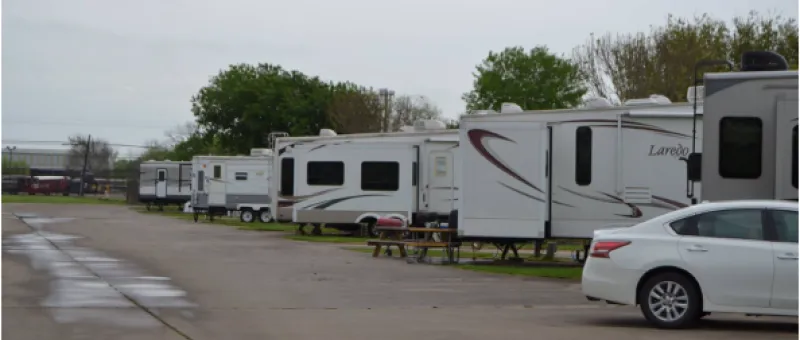RV Maintenance Tips For Long Staysproper drainage, especially during rain showers.
Seasonal System Maintenance Schedule
Summer cooling system care
Summers in Texas mean your AC system has to work. Start your summer prep early by cleaning or replacing AC filters often. The hot afternoons can push your AC to its limits, so clean your condenser coils before summer hits.
Winter freeze protection measures
Winters can surprise you with unexpected chilly weather. Here’s what you need to do!
Drain and flush all water tanks properly
Add RV-specific antifreeze to exterior termination pipes
Install heated water hose or wrap regular hose with heat cable
Think over RV skirting to block those cold winds
Check and reinforce window and door seals
Spring and Fall transition maintenance
These in-between seasons give you the perfect chance to check everything. Spring is the time to return your water system back to normal and look for any leaks. Fall is the time for preventive maintenance. Check your roof seals, test the furnace, and clean the vents before winter shows up.
Long-Term Site Setup and Care
Setting up your RV needs more than just parking and connecting utilities. A proper setup makes the difference between a comfortable stay and a bunch of frustration.

Proper leveling and stabilization
Skirting and insulation considerations
UV-resistant materials work best for a sunny climate
Good ventilation prevents moisture buildup
Flexible installation handles slight movements
Removable panels give easy access to utilities
Site drainage management
Water can damage your RV during long-term parking. Create a slight grade away from your RV with gravel or specialized drainage materials. Note that regular checks of your site’s drainage patterns help after heavy rains. Your sewer hose needs the right slope to prevent backups.
Preventive Maintenance for Extended Parking
Long-term RV stays offer a great opportunity to enjoy a home-on-wheels. Keeping the RV in good condition during longer stays is important to avoid maintenance issues down the road.

Tire care during long-term stays
Check pressure every two weeks
Use quality tire covers to shield against UV rays
Place your tires on specialized pads
Give your wheels a slight turn monthly to avoid flat spots
Protecting against UV and weather damage
The Texas sun can really beat down on your RV. Start by applying a quality UV protectant to your exterior surfaces. Sort of like sunscreen for your RV. Get up on that roof safely every now and then to check all your sealants. Also, a good wash every few weeks isn’t bad either.
You’re Ready For A Long Stay!
RV Maintenance FAQs
To prepare your RV for long-term storage, remove all food and debris to prevent attracting pests. Clean both the interior and exterior. To get rid of moisture accumulation, use moisture absorbers. Disconnect the RV battery to prevent drain and cover your tires to protect them from weather damage.
Regular maintenance for an RV should include checking and resealing exterior surfaces, running the generator for at least two hours each month, maintaining battery fluid levels with distilled water, and replacing damaged vent lids & caps.
To extend the lifespan of your RV, inspect and maintain the roof seals and seams. Tighten wheel lug nuts and monitor tire pressure. Check the condition of your RV’s batteries and keep the waste water system functioning right.
When preparing for full-time RV living, consider the location and associated costs. Adopt a flexible mindset, downsize personal belongings, and prepare for diverse weather conditions.
